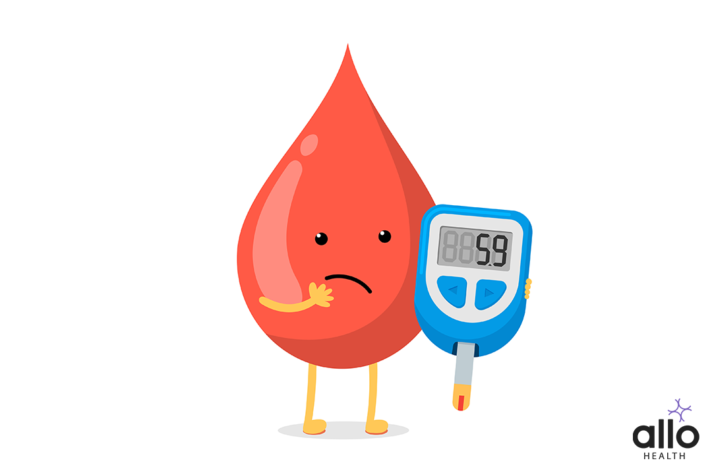Pills To Treat A Permanently Impotent Man

Allo Health is dedicated to personalized well-being, offering support and trusted information tailored to individual health goals. The platform emphasizes human-generated content, led by a distinguished medical team of experts, including physicians and sexual health specialists. Their commitment to credibility involves rigorous fact-checking, authoritative research, and continuous updates to ensure accurate, up-to-date information. Allo Health's unique approach goes beyond conventional platforms, providing expert-led insights and a continuous commitment to excellence, with user feedback playing a crucial role in shaping the platform's authoritative voice.

Dr. Raj. R holds an undergraduate medical degree from the Philippines, and has a bachelors background in Psychology. His experience working in the field of urology further brought his interest forward in working towards his passion of understanding the science of attraction, intimacy, sex and relationships. A key motto he practices by remains unprejudiced and non-judgemental care.
Why This Was Upated?
Our experts continually monitor the health and wellness space, and we update our articles when new information became available.
Updated on 09 February, 2024
- Article was updated as part of our commitment to diversity, equity, and inclusion.

"The following blog article may discuss medical treatments and interventions. However, it is important to note that the information provided is for general educational purposes only and should not be considered as a substitute for professional medical advice, diagnosis, or treatment. Always seek the guidance of a qualified healthcare professional for personalized medical advice.
Book consultation
Medical treatments are complex and should be tailored to individual circumstances. The information presented in this blog may not be applicable to everyone, as each person's medical condition, history, and needs are unique. Only a qualified healthcare professional can evaluate your specific medical situation, consider relevant factors, and provide appropriate recommendations for diagnosis, treatment options, and monitoring.
It is crucial to note that self-diagnosis, self-medication, or relying solely on the information provided in this blog for treatment decisions can have serious health consequences. "
Impotence, also known as erectile dysfunction, can be a frustrating condition for men to deal with. While impotence pills have become a popular treatment option, there is growing concern about the side effects and risks associated with taking these medications. In this article, we will explore the pros and cons of taking impotence pills and how they can impact sexual health and emotional well-being.
What Are Impotence Pills and How Do They Work?
- Introduction:
- Explore the world of impotence pills and their role in addressing erectile dysfunction (ED).
- Types of Impotence Pills:
- PDE5 Inhibitors: Widely prescribed, they enhance blood flow to the penis.
- Testosterone Replacement Therapy: Boosts testosterone levels, aiding in ED cases linked to low testosterone.
- Alprostadil: A vasodilator, it relaxes blood vessels, promoting increased blood flow.
- How They Work:
- PDE5 Inhibitors Mechanism: Inhibit the enzyme PDE5, promoting the dilation of blood vessels and improving erection.
- Testosterone Replacement: Addresses hormonal imbalance, crucial for a healthy sex drive and erectile function.
- Alprostadil Action: Directly relaxes smooth muscle tissue, allowing for increased blood flow to the penis.
- Factors to Consider:
- Consultation: Always consult a healthcare professional before starting any medication.
- Side Effects: Be aware of potential side effects and interactions with other medications.
- Underlying Causes: Pills may not address psychological factors; holistic approaches may be necessary.
- Effectiveness and Limitations:
- Success Rates: Generally effective, with high success rates reported for PDE5 inhibitors.
- Individual Response: Effectiveness varies; what works for one may not for another.
- Not a Cure-All: Pills may not address the root cause, and lifestyle changes may be necessary for long-term improvement.
- Conclusion:
- Balanced Approach: Impotence pills can be a valuable part of ED treatment, but a holistic approach considering lifestyle, mental health, and overall well-being is essential.
The Benefits of Taking Impotence Pills for Men
- Enhanced sexual performance: Impotence pills can improve blood flow, aiding in firmer and longer-lasting erections.
- Boosted confidence: Overcoming erectile dysfunction can lead to increased self-assurance in intimate relationships.
- Improved relationship satisfaction: Addressing impotence can positively impact overall relationship dynamics and intimacy.
- Enhanced psychological well-being: Successfully treating erectile concerns may reduce stress and anxiety, promoting better mental health.
- Convenience: Oral impotence medications offer a convenient and discreet solution for men seeking to overcome performance challenges.
- Increased spontaneity: With the help of impotence pills, men can experience increased spontaneity in their sexual encounters.
- Medical guidance: Prescribed impotence medications often come with professional guidance, ensuring safe and effective usage.
- Positive impact on overall health: Addressing erectile dysfunction may contribute to improved cardiovascular health (implement cardiovascular exercise) and overall well-being.
The Drawbacks and Side Effects of Impotence Pills
While impotence pills can be effective, they also come with several potential drawbacks and side effects. Some men experience headaches, flushing, or stomach upset when taking these medications. More severe side effects can include changes in vision, hearing loss, or a prolonged erection lasting more than four hours. There is also the risk of interactions with other medications or alcohol, which can lead to a dangerous drop in blood pressure (use blood pressure drugs).
Another potential drawback of impotence pills is that they may not work for everyone. Some men may not experience any improvement in their erectile dysfunction symptoms, while others may only experience a partial improvement. Additionally, impotence pills are not a permanent solution and must be taken every time a man wants to engage in sexual activity.
It is also important to note that impotence pills do not address the underlying causes of erectile dysfunction. While they may provide temporary relief, they do not cure the condition. Men who are experiencing erectile dysfunction should speak with their healthcare provider to determine the underlying cause and explore other treatment options.
The Risks Associated with Permanent Impotence
- Medical Conditions: Certain health concerns like changes in blood sugar levels, cardiovascular diseases, and hypertension can contribute to permanent impotence.
- Neurological Disorders: Conditions affecting the nervous system, such as multiple sclerosis or Parkinson’s disease, may lead to irreversible risk of erectile dysfunction.
- Pelvic Trauma: Injuries to the pelvic region, including accidents or surgical complications, can damage blood vessels and nerves critical for erections.
- Prostate Cancer Treatment: Some prostate cancer therapies, like surgery or radiation, may result in erectile dysfunction due to damage to surrounding tissues. Erectile dysfunction pills are also there, to improve the condition.
- Hormonal Imbalances: Endocrine disorders affecting testosterone levels can impact sexual function, potentially causing long-term impotence.
- Medications: Prolonged use of certain drugs, including antidepressants, antihypertensives, or antiandrogens, may lead to irreversible erectile conditions.
- Psychological Factors: Chronic stress, anxiety, or depression can contribute to long-term erectile dysfunction if left unaddressed.
- Smoking and Substance Abuse: Habits like smoking and excessive alcohol or drug consumption can damage blood vessels and nerves, increasing the risk of permanent impotence.
- Age-related Changes: While not always permanent, age-related declines in hormone levels and overall health can contribute to persistent erectile difficulties.
- Lifestyle Factors: A sedentary lifestyle, obesity, and poor dietary habits can contribute to conditions like atherosclerosis, impacting blood flow and leading to irreversible impotence.
- Poor Blood Circulation: Conditions like atherosclerosis or peripheral artery disease (heart disease) can impair blood flow to the penis, resulting in persistent erectile dysfunction.
- Psychological Trauma: Severe emotional trauma, such as sexual abuse or PTSD, may contribute to long-term erectile concerns that require professional intervention.
- Lack of Treatment: Ignoring initial signs of erectile dysfunction and not seeking timely medical help can increase the risk of developing permanent impotence.
Can Impotence Pills Cause Permanent Damage to Sexual Health?
- Overview:
- Explore the potential long-term impact of impotence pills on sexual health.
- Temporary Relief, Potential Risks:
- Impotence pills provide short-term solutions.
- Prolonged usage may lead to dependency.
- Vascular Concerns:
- Some pills impact blood flow, affecting cardiovascular conditions.
- Long-term use may exacerbate existing vascular concerns.
- Nerve Damage Possibility:
- Pills may affect nerve function.
- Prolonged exposure may contribute to neuropathy.
- Psychological Dependency:
- Risk of psychological reliance on pills for sexual performance, during sexual intercourse.
- Impact on self-esteem and confidence.
- Hormonal Imbalance:
- Altered hormone levels due to medication.
- Potential long-term consequences on sexual health, and in one’s sex life.
- Consultation and Monitoring:
- Regular medical check-ups are crucial for those on prolonged medication.
- Open communication with healthcare professionals is advised.
- Lifestyle Modifications:
- Emphasize holistic approaches like exercise and a healthy diet.
- Minimize reliance on pills through lifestyle changes.
- Individual Variances:
- Responses to impotence pills vary; personalized care is essential.
- Assess risks and benefits with healthcare providers.
- Conclusion:
- While impotence pills (for treatment of impotence) offer relief, understanding potential long-term implications is vital. Balanced approaches, including medical guidance, lifestyle adjustments, and regular monitoring, are essential for maintaining overall sexual health.
Understanding the Psychological Impact of Permanent Impotence
- Introduction:
- Explore the profound psychological effects of permanent impotence on individuals.
- Emotional Strain:
- Experience a range of emotions, from anxiety and depression to frustration and loss of self-esteem.
- Understand the impact on personal relationships and the potential for emotional distancing.
- Identity Crisis:
- Delve into the challenges of grappling with a changed sense of self-worth and masculinity.
- Address societal expectations and norms related to male sexual performance.
- Communication Breakdown:
- Examine the difficulties in expressing feelings and concerns to partners, leading to strained communication.
- Explore strategies for fostering open and supportive dialogues.
- Seeking Professional Help:
- Highlight the importance of consulting mental health professionals for coping strategies and emotional support.
- Discuss therapeutic approaches to navigate the psychological impact.
- Coping Mechanisms:
- Discover adaptive coping mechanisms, such as mindfulness, self-compassion, and support groups.
- Emphasize the role of partner involvement in creating a supportive environment.
- Rebuilding Intimacy:
- Provide insights into rebuilding intimacy through alternative forms of connection and emotional bonding.
- Encourage couples to explore new dimensions of their relationship beyond physical intimacy.
- Conclusion:
- Acknowledge the complexity of the psychological impact of permanent impotence and offer hope through proactive coping strategies.
How to Identify Signs of Permanent Impotence and When to Seek Help

- Understanding Permanent Impotence:
- Explore the causes and factors contributing to permanent impotence.
- Recognize the distinction between temporary and irreversible erectile dysfunction.
- Key Signs to Watch for:
- Consistent inability to achieve or maintain an erection.
- Reduced sexual desire and performance over an extended period.
- Emotional distress and relationship strain due to persistent sexual difficulties.
- Physical Health Indicators:
- Chronic conditions like diabetes, cardiovascular concerns, or hormonal imbalances.
- Nerve damage or injury affecting the genital region.
- Medication side effects impacting sexual function.
- Psychological Factors:
- Identify stress, anxiety, or depression as potential contributors.
- Emotional trauma affecting sexual confidence.
- Relationship concerns influencing overall well-being.
- When to Seek Professional Help:
- If symptoms persist for more than a few months.
- Immediate consultation if a sudden onset of impotence occurs.
- Consideration of overall health and lifestyle changes.
- Diagnostic Tests and Examinations:
- Blood tests to assess hormonal levels and underlying health concerns.
- Physical examination to detect structural abnormalities.
- Psychological assessments to understand emotional factors.
- Treatment Options and Lifestyle Changes:
- Medications, such as PDE5 inhibitors, under medical supervision.
- Counseling for psychological factors impacting sexual health.
- Lifestyle modifications, including exercise and a balanced diet.
- Importance of Open Communication:
- Encourage open dialogue with healthcare professionals and partners.
- Addressing concerns together can strengthen emotional bonds.
- Recognize the importance of seeking help promptly for effective interventions.
- Conclusion:
- Permanent impotence is a complex issue with various causes.
- Early identification and proactive measures can lead to successful intervention.
- Prioritize holistic well-being and open communication for a healthier, satisfying life.
Alternative Treatment Options for Sexual Dysfunction
For men who are hesitant to take impotence pills or who have experienced negative side effects, there are several alternative treatment options available. These can include lifestyle changes such as diet and exercise, as well as non-invasive treatments such as vacuum pumps or injections. For men with more severe cases of erectile dysfunction, surgical options such as penile implants or vascular surgery may also be considered.
One alternative treatment option for sexual dysfunction that has gained popularity in recent years is shockwave therapy. This non-invasive treatment involves using low-intensity shockwaves to improve blood flow to the penis, which can help with achieving and maintaining an erection. Another option is psychotherapy, which can help address any underlying psychological factors that may be contributing to sexual dysfunction.
It’s important to note that not all alternative treatments for sexual dysfunction are backed by scientific evidence, and some may even be harmful. It’s always best to consult with a healthcare professional before trying any new treatment, especially if you have underlying health conditions or are taking medication.
The Importance of Discussing Sexual Health with Your Doctor

- Prioritize Overall Well-being: Open communication about sexual health ensures comprehensive care and addresses potential concerns.
- Early Detection of Concerns: Regular discussions enable early identification of sexual health concerns, aiding timely intervention and prevention.
- Holistic Approach to Healthcare: Integrating sexual health discussions promotes a holistic approach to well-being, considering physical and emotional aspects.
- Enhanced Doctor-Patient Relationship: Fostering trust through open dialogue strengthens the doctor-patient relationship, making individuals more comfortable seeking guidance.
- Tailored Advice and Guidance: Personalized recommendations for sexual health contribute to a more effective and customized healthcare plan.
- Preventive Measures: Discussing sexual health allows for proactive measures, reducing the risk of sexually transmitted infections and unplanned pregnancies.
- Mental Health Impact: Sexual well-being is closely linked to mental health; addressing concerns can positively impact overall psychological and emotional balance.
- Educational Opportunities: Doctors can provide valuable information, educating patients on safe practices, contraception, and the importance of regular check-ups.
- Empowerment and Awareness: Encouraging dialogue empowers individuals to take control of their sexual health, fostering a sense of responsibility and awareness.
- Normalization of Discussions: Open conversations help destigmatize sexual health concerns, promoting a more inclusive and understanding healthcare environment.
How to Cope with the Emotional Effects of Permanent Impotence
- Acknowledge emotions: Accept and validate the range of emotions that may arise.
- Seek support: Open up to a trusted partner, friend, or therapist for understanding.
- Educate yourself: Learn about treatment options and lifestyle adjustments.
- Communication is key: Maintain open and honest dialogue with your partner to foster intimacy.
- Explore non-sexual connections: Strengthen emotional bonds through shared activities.
- Professional help: Consult with healthcare professionals for guidance and coping strategies.
- Self-compassion: Practice self-love and understanding during this challenging time.
- Adjust expectations: Redefine intimacy and prioritize emotional connections over physical performance.
- Consider therapy: Couples or individual therapy can provide valuable tools for coping.
- Focus on overall well-being: Emphasize healthy lifestyle choices to improve mental and physical health.
The Role of Relationships in Dealing with Permanent Impotence

- Emotional support: Strong relationships provide a crucial emotional anchor for coping with permanent impotence.
- Communication: Open dialogue fosters understanding, reducing stigma and promoting shared decision-making.
- Intimacy beyond sex: Focusing on emotional connection and shared activities strengthens bonds.
- Seeking professional help: Couples therapy aids in navigating challenges and adapting to the new normal.
- Rediscovering pleasure: Exploring alternative forms of intimacy sustains a fulfilling connection.
Legal and Ethical Considerations Surrounding the Use of Impotence Pills
- Introduction:
- Explore the legal and ethical landscape of impotence pills.
- Regulatory Framework:
- Overview of government regulations governing the production, marketing, and sale of impotence pills.
- Compliance with FDA or equivalent agency guidelines.
- Prescription Requirements:
- Highlight the importance of a valid prescription for certain impotence medications.
- Legal consequences of obtaining and distributing prescription drugs without proper authorization.
- Advertising and Marketing:
- Discuss ethical considerations in the advertising of impotence pills.
- Examination of potential legal concerns related to false claims or misleading marketing practices.
- Consumer Privacy:
- Address concerns about the collection and protection of sensitive consumer data during the purchase of impotence pills.
- The role of legal frameworks such as GDPR in safeguarding privacy.
- Off-Label Use:
- Evaluate the legal and ethical implications of using impotence pills for purposes other than originally intended.
- Healthcare provider responsibility and patient education.
- International Perspectives:
- Contrast legal and ethical considerations in various countries.
- Highlight disparities and commonalities in regulations.
- Professional Conduct:
- Emphasize the ethical obligations of healthcare professionals prescribing impotence pills.
- Explore the potential legal consequences of malpractice or unethical conduct.
- Alternative Therapies:
- Consider legal and ethical aspects of alternative impotence treatments.
- Regulation of herbal supplements (herbal remedies) and non-prescription remedies (alternative remedies).
- Future Trends:
- Predictive analysis of evolving legal and ethical considerations in the field.
- Anticipate potential changes in regulations and their impact on impotence pill usage.
- Conclusion:
- Summarize key legal and ethical considerations surrounding impotence pills.
- Encourage a balanced approach that prioritizes patient well-being within the boundaries of the law.
Moving Forward: Living a Full Life After Permanent Impotence
- Embrace Emotional Resilience: Cultivate a positive mindset to navigate the emotional challenges associated with permanent impotence.
- Communication is Key: Foster open and honest communication with your partner to strengthen your relationship and address intimacy concerns.
- Seek Professional Support: Consult with healthcare professionals, therapists, and support groups to explore coping strategies and holistic well-being.
- Rediscover Intimacy: Explore non-sexual forms of intimacy, such as emotional connection, communication, and shared activities, to maintain a fulfilling relationship.
- Adaptation and Acceptance: Embrace a new normal by adapting to changes and accepting the situation, focusing on personal growth and overall life satisfaction.
- Explore Alternative Intimacy: Discover alternative forms of physical connection and pleasure, ensuring a fulfilling and satisfying life beyond traditional sexual experiences.
- Self-Care Matters: Prioritize self-care routines, mental health, and physical well-being to promote overall life satisfaction and a sense of fulfillment.
- Foster Support Networks: Build a strong support system with friends, family, or support groups to share experiences and gain valuable insights for navigating life after permanent impotence.
- Set New Goals: Channel energy into personal and professional goals, cultivating a sense of purpose and accomplishment beyond the challenges of impotence.
- Emphasize Overall Well-Being: Focus on holistic well-being by incorporating healthy lifestyle choices, including diet, exercise, and mindfulness, to enhance the quality of life.
- Reshape Sexual Expectations: Redefine notions of sexual fulfillment by exploring diverse aspects of intimacy and connection, fostering a renewed sense of satisfaction and happiness.
Most Asked Questions
-
Can pills guarantee permanent impotence in men?
No, such pills may have serious health risks and are not recommended by healthcare professionals. Consult a doctor for safe and effective solutions.
-
Are there over-the-counter pills for permanent impotence?
No proven OTC pills exist for permanent impotence. Prescription medications should only be taken under a doctor's supervision to avoid adverse effects.
-
What are the risks associated with pills claiming permanent impotence?
These pills may cause severe side effects, including cardiovascular concerns. Consult a healthcare professional before considering any medication for impotence.
-
Do natural or herbal pills offer permanent impotence solutions?
Claims of herbal or natural remedies for permanent impotence lack scientific evidence. Always consult a healthcare provider for personalized advice.
-
Can I self-prescribe pills to achieve permanent impotence?
Self-prescribing for permanent impotence is dangerous. Seek guidance from a qualified healthcare professional to explore safe and effective options tailored to your health needs.






































